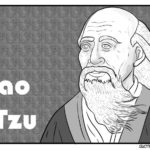Who Sun Tzu Art Of War
Sun Tzu was a Chinese general, military strategist, writer and philosopher who lived in the Eastern Zhou period of ancient China. Sun Tzu is traditionally credited as the author of The Art of War, an influential work of military strategy that has affected both Western and East Asian philosophy and military thinking. His works focus much more on alternatives to battle, such as stratagem, delay, the use of spies and alternatives to war itself, the making and keeping of alliances, the uses of deceit and a willingness to submit, at least temporarily, to more powerful foes.
Sun Tzu’s historicity is uncertain. The Han dynasty historian Sima Qian and other traditional Chinese historians placed him as a minister to King Helü of Wu and dated his lifetime to 544–496 BC. Modern scholars accepting his historicity place the extant text of The Art of War in the later Warring States period based on its style of composition and its descriptions of warfare. Traditional accounts state that the general’s descendant Sun Bin wrote a treatise on military tactics, also titled The Art of War. Since Sun Wu and Sun Bin were referred to as Sun Tzu in classical Chinese texts, some historians believed them identical, prior to the rediscovery of Sun Bin’s treatise in 1972.
Sun Tzu Art Of War Quotes
1. Appear weak when you are strong, and strong when you are weak.
2. The supreme art of war is to subdue the enemy without fighting.
3. If you know the enemy and know yourself, you need not fear the result of a hundred battles. If you know yourself but not the enemy, for every victory gained you will also suffer a defeat. If you know neither the enemy nor yourself, you will succumb in every battle.
4. Let your plans be dark and impenetrable as night, and when you move, fall like a thunderbolt.
5. Supreme excellence consists of breaking the enemy’s resistance without fighting.
6. Supreme excellence consists of breaking the enemy’s resistance without fighting.
7. Victorious warriors win first and then go to war, while defeated warriors go to war first and then seek to win.
8. In the midst of chaos, there is also opportunity.
9. If your enemy is secure at all points, be prepared for him. If he is in superior strength, evade him. If your opponent is temperamental, seek to irritate him. Pretend to be weak, that he may grow arrogant. If he is taking his ease, give him no rest. If his forces are united, separate them. If sovereign and subject are in accord, put division between them. Attack him where he is unprepared, appear where you are not expected .
10. The greatest victory is that which requires no battle.
11. Engage people with what they expect; it is what they are able to discern and confirms their projections. It settles them into predictable patterns of response, occupying their minds while you wait for the extraordinary moment — that which they cannot anticipate.
12. There is no instance of a nation benefitting from prolonged warfare.
13. Thus we may know that there are five essentials for victory:
1 He will win who knows when to fight and when not to fight.
2 He will win who knows how to handle both superior and inferior forces.
3 He will win whose army is animated by the same spirit throughout all its ranks.
4 He will win who, prepared himself, waits to take the enemy unprepared.
5 He will win who has military capacity and is not interfered with by the sovereign.
14. Treat your men as you would your own beloved sons. And they will follow you into the deepest valley.
15. Move swift as the Wind and closely-formed as the Wood. Attack like the Fire and be still as the Mountain.
16. When you surround an army, leave an outlet free. Do not press a desperate foe too hard.
17. The art of war is of vital importance to the State. It is a matter of life and death, a road either to safety or to ruin. Hence it is a subject of inquiry which can on no account be neglected.
18. There are not more than five musical notes, yet the combinations of these five give rise to more melodies than can ever be heard.
There are not more than five primary colours, yet in combination
they produce more hues than can ever been seen.
There are not more than five cardinal tastes, yet combinations of
them yield more flavours than can ever be tasted.
19. When the enemy is relaxed, make them toil. When full, starve them. When settled, make them move.
20. who wishes to fight must first count the cost.
21. So in war, the way is to avoid what is strong, and strike at what is weak.
22. To win one hundred victories in one hundred battles is not the acme of skill. To subdue the enemy without fighting is the acme of skill.
23. Be extremely subtle even to the point of formlessness. Be extremely mysterious even to the point of soundlessness. Thereby you can be the director of the opponent’s fate.
24. What the ancients called a clever fighter is one who not only wins, but excels in winning with ease.
25. One may know how to conquer without being able to do it.
26. The wise warrior avoids the battle.
27. The whole secret lies in confusing the enemy, so that he cannot fathom our real intent.
28. Rouse him, and learn the principle of his activity or inactivity. Force him to reveal himself, so as to find out his vulnerable spots.
29. If you know the enemy and know yourself, your victory will not stand in doubt; if you know Heaven and know Earth, you may make your victory complete.
30. He who is prudent and lies in wait for an enemy who is not, will be victorious.
31. Anger may in time change to gladness; vexation may be succeeded by content.
But a kingdom that has once been destroyed can never come again into being; nor can the dead ever be brought back to life.
32. Anger may in time change to gladness; vexation may be succeeded by content.
But a kingdom that has once been destroyed can never come again into being; nor can the dead ever be brought back to life.
33. If your opponent is of choleric temper, seek to irritate him. Pretend to be weak, that he may grow arrogant.
34. There are roads which must not be followed, armies which must not be attacked, towns which must not be besieged, positions which must not be contested, commands of the sovereign which must not be obeyed.
35. Attack is the secret of defense; defense is the planning of an attack.
36. Great results, can be achieved with small forces.
37. Attack him where he is unprepared, appear where you are not expected.
38. If soldiers are punished before they have grown attached to you, they will not prove submissive;
and, unless submissive, then will be practically useless. If, when the soldiers have become attached
to you, punishments are not enforced, they will still be unless.
39. Ponder and deliberate before you make a move.
40. Knowing the enemy enables you to take the offensive, knowing yourself enables you to stand on the defensive.
41. Bravery without forethought, causes a man to fight blindly and desperately like a mad bull. Such an opponent, must not be encountered with brute force, but may be lured into an ambush and slain.
42. If ignorant both of your enemy and yourself, you are certain to be in peril.
43. mystify, mislead, and surprise the enemy.
44. Never venture, never win!
45. Move not unless you see an advantage; use not your troops unless there is something to be gained; fight not unless the position is critical..
46. He will win who, prepared himself, waits to take the enemy unprepared.
47. The skillful tactician may be likened to the shuai-jan. Now the shuai-jan is a snake that is found in the Ch’ang mountains. Strike at its head, and you will be attacked by its tail; strike at its tail, and you will be attacked by its head; strike at its middle, and you will be attacked by head and tail both.
48. If his forces are united, separate them.
49. But a kingdom that has once been destroyed can never come again into being; nor can the dead ever be brought back to life.
50. It is easy to love your friend, but sometimes the hardest lesson to learn is to love your enemy.
51. Do not repeat the tactics which have gained you one victory, but let your methods be regulated by the infinite variety of circumstances.
52. Begin by seizing something which your opponent holds dear; then he will be amenable to your will.
53. If he sends reinforcements everywhere, he will everywhere be weak.
54. Rewards for good service should not be deferred a single day.
55. Disorder came from order, fear came from courage, weakness came from strength.
56. Know your enemy and know yourself and you can fight a hundred battles without disaster.
57. who does not know the evils of war cannot appreciate its benefits.
58. It is only the enlightened ruler and the wise general who will use the highest intelligence of the army for the purposes of spying, and thereby they achieve great results.
59. Hence to fight and conquer in all your battles is not supreme excellence; supreme excellence consists in breaking the enemy’s resistance without fighting.
60. There are five dangerous faults which may affect a general:
(1) Recklessness, which leads to destruction;
(2) cowardice, which leads to capture;
(3) a hasty temper, which can be provoked by insults;
(4) a delicacy of honor which is sensitive to shame;
(5) over-solicitude for his men, which exposes him to worry and trouble.



